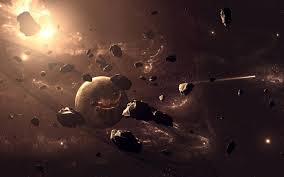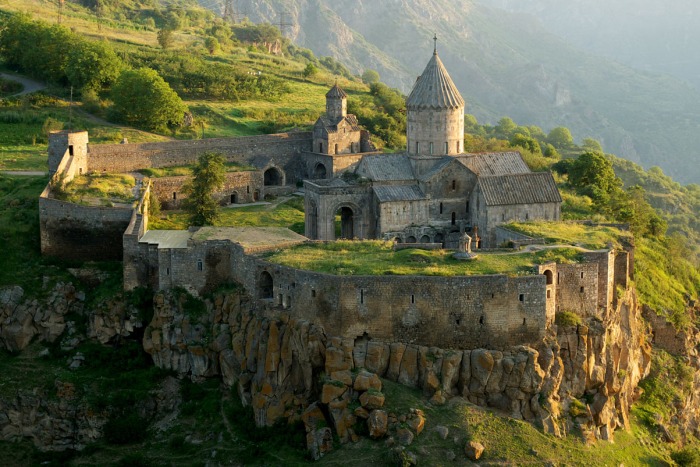In the previous post, I had listed down books which predominantly fell into the fiction genre. In contrast, this post will focus primarily on non-fiction. However, before I start listing down my favorites of the genre, I’ll be doing a short section on contemporary fiction first for the sake of achieving a sense of completion.
Contemporary Fiction
To be honest, I haven’t read a lot of contemporary fiction. I haven’t all the books listed over here. I’ve included them purely on the basis of the recommendations of the online community as well as a few credible friends.
- The Fault in Our Stars- John Green
Two terminally ill teenagers meet and fall in love. This books is an absolute favorite among my female friends. Get ready to get all teary eyed. - The Kite Runner- Khaled Hosseni
Set in modern Afghanistan, The Kite Runner chronicles the lives of two young Afghan boys as they witness the fall of the Afghan monarchy, the Soviet intervention and the rise of the Taliban regime. - Q&A- Vikas Swarup
The book on which the Oscar winning movie Slumdog Millionaire is based on, Q&A offers us a glimpse into the dark, macabre lives of children in Mumbai’s slums. After reading the book, you’ll genuinely happy and content with the quality of life you’ve got. - The Book Thief- Markus Zusak
Few books have left me in such a maelstrom of emotions as The Book Thief. Set in Nazi Germany and narrated by Death Himself, it is the story of 13 year old Liesel Meminger as she struggles to find happiness and meaning through books. - Midnight’s Children- Salman Rushdie
When a book wins the ‘Booker of Bookers’ in both the 25th and the 40th anniversary of the prize, you know it has to be something spectacularly good. Set in post-colonial India, with its magical realism, Midnight’s Children is just that. A must read for every literature aficionado.
Poetry
- The Prophet-Khalil Gibran
The magnum opus of my favorite poet, The Prophet is filled with timeless advice on everything imaginable: love, work, family, children, relationships, hate. And the lines are so beautiful that they are bound to strike a chord with your heart. - Gitanjali- Rabindranath Tagore
This work by Tagore made him the first non-European in history to win a Nobel Prize. And it wasn’t without good reason. Even though I read the translated version, I found his verses to be overwhelmingly euphonious. - 20 Love Songs and a Song of Despair– Pablo Neruda
The champion of passion and unrequited love, Pablo Neruda has given words to the ardor of countless lovers across the globe. This is a collection of some of his very best (See Twin Geniuses: Tagore and Neruda). - Essential Rumi- Coleman Barks
The translated works of 13th century Sufi mystic poet Rumi, Essential Rumi is a treasure trove of wisdom imparted by the mystic almost over a millennium ago. Like Gibran, Rumi’s lines will definitely manage to reach the deepest centers of your heart.
I realize that the poetry I’ve listed are all translated works. If you want to read ‘pure’ English poetry, look for the works of William Blake (Songs of Innocence and Experience), Walt Whitman (Leaves of Grass), Emily Dickinson, Robert Frost, T.S.Eliot, Alfred Lord Tennyson and Edgar Allen Poe.
Biography
- Steve Jobs- Walter Isaacson
What sets Walter Isaacson’s biography apart is its unapologetic honesty of the man who founded the most valuable company on the planet. Halfway through the book, I hated and loved Jobs at the same time. Very few books will give you such honesty. - The Man Who Knew Infinity- Robert Kanigel
My favorite biography, Kanigel’s account of Indian genius Ramanujan is probably the most comprehensive account you will get of the great mathematician’s life. - The Accidental Billionaires- Ben Mezrich
Although not a biography per se, Mezrich’s tale of the rise of Facebook and a bitter legal battle that ensued shortly after its launch makes it an exhilarating read. - Surely you’re joking, Mr. Feynman!- Richard Feynmann
The autobiography of one of the most eccentric physicists of the twentieth century, this book is an account of the craziest adventures and discussions undertaken by Feynmann.
Art, Culture and History
- Natasha’s Dance- Orlando Figes
Russia has given some of the greatest authors in history. Russian novels and stories can pierce your heart like no other. This book is an account of the cultural history of Russia that gives us an insight into the kinds of developments that took place that led to the rise of the Russian arts. - The Story of Art- E.M.Gombrich
This introduction to art gives us an account of its history from cave paintings to experimental art of the 1960s. - On Writing- Stephen King
This semi-autobiography of King is an ode to the art of writing and the struggles and delights of being a writer. - The Diary of a Young Girl- Anne Frank
The unintentional autobiography of Holocaust’s most famous victim, The Diary of a Young Girl gives us a surreal glimpse into the lives of the Jews hiding in Nazi Germany. - Unbroken- Laura Hillenbrand
This collection of stories from World War 2 gives us accounts of survival, resilience and redemption showcased by civilians and armies alike.
Technology, Math and Startups
- Zero to One- Peter Thiel
A collection of the notes of the class taught by founder of Paypal and Palantir, Peter Thiel, Zero to One is widely regarded as the bible of starting up. - The $100 Startup– Chris Guillebeau
This book is about micro-businesses and roaming entrepreneurs and how it is actually feasible making a living out of doing something that you love (See Microbusiness and Travel) - The Code Book- Simon Singh
One of my favorite non-fiction books of all time, The Code Book narrates the little told story of the art of security and secret writing. - Fermat’s Last Theorem- Simon Singh
This book is an account of a three centuries long struggle to prove Fermat’s Last Theorem; a proof which Fermat claimed not to have put on paper because it required too much space. - God Created The Integers- Stephen Hawking
With commentary from Hawking, God Created the Integers highlights the biggest mathematical breakthroughs in the history of mankind which went to shape human civilization as we know it.
Science
- A Brief History of Time- Stephen Hawking
Arguably the most famous science book of all time, A Brief History of Time gives the layman a glimpse into the wonderfully complicated universe that we live in and our struggle to understand it. - A Short History of Nearly Everything- Bill Bryson
This book on Big History gives us an account of the history of the Universe, from the Big Bang to the present day (See Big History) - Chariot of the Gods- Erich von Daniken
A bold hypothesis of how human civilization was shaped by extra terrestrial beings who visited Earth a long time ago, Chariot of the Gods is the quintessential account (and possibly proof) of panspermia and intelligent extra-terrestrial life. - What If- Randall Munroe
In this book, former NASA scientist and founder of xkcd comics Randall Munroe answers absurd questions regarding the world and the universe (See Of Science and Comic Books)
Philosophy and Religion
- The God Delusion- Richard Dawkins
The bible of atheism, The God Delusion argues how the probability of a supernatural being existing is almost zero if the theory of evolution is to be believed. - The Dhammapada- Anonymous
The Dhammapada is a collection of the Buddha’s teachings and gives us a glimpse into the teachings and principles of Buddhism. - History of Western Philosophy- Bertrand Russell
History of Western Philosophy is an account of every major philosophical thought from the time of the ancient Greeks to the present
Economics and Psychology
- Freakonomics and Superfreakonomics- Steven Leviit and Stephen Dubner
The craziest economics books you can find, Freakonomics and Superfreakonomics tell us about the hidden side of everything. Why do drug dealers live with their moms? Why should suicide bombers buy life insurance? How did legalization of abortion lead to a drop in crime rate in the US? Read the books to find out. - Thinking Fast and Slow- Daniel Kahneman
The bible of Behavioral Economics, Thinking Fast and Slow is one of the best books you’ll read on the subject (See Revisiting Psychology) - Predictably Irrational- Dan Ariely
Like the previous book, this too gives us an insight into the anomalies and idiosyncrasies of human behavior. A must read for anyone who plans on starting a business or is in marketing or public relations (See Human Behavior and Irrationality) - Economics in One Lesson- Henry Hazlitt
A champion of the Austrian School of Economic Thought, Hazlitt tries to explain the problems with traditional economic principles through a series of well known historical cases. - The Man Who Mistook His Wife For A Hat- Oliver Sacks
A brilliant account of the strangest cases encountered by Sacks in his medical career, this book is a must read for anyone with the slightest interest in Clinical Psychology. - Interpretation of Dreams- Sigmund Freud
One of the pioneers of the field of Psychology, Freud sets out to explain how our dreams can tell us much about our deepest desire, passion, pain and ambition.
And I shall stop here. I think I have covered a majority of the major fields of interest. Yet, I understand that one person’s experience with books leads to the creation of a relatively skewed list. Again as before, this list is in no ways exhaustive of any kind. There are plenty of amazing books I haven’t listed or have missed out on. Please feel free to list them in the comments.


























































